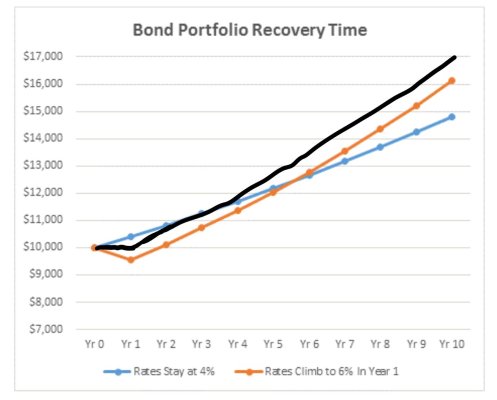VanWinkle
Thinks s/he gets paid by the post
I read this interesting article from a very intelligent poster on Bogleheads concerning the rising rates and how they affect a long term investor.
https://www.bogleheads.org/forum/viewtopic.php?p=6286231#
The idea that bond funds lose money is tied to short term thinking
about a long term investment. Short term bond funds will also make
money based on the interest rates of the bonds purchased within the
fund.
VW
https://www.bogleheads.org/forum/viewtopic.php?p=6286231#
The idea that bond funds lose money is tied to short term thinking
about a long term investment. Short term bond funds will also make
money based on the interest rates of the bonds purchased within the
fund.
VW


